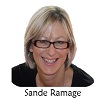
Trying to write about trusting my dreams reminded of the book, Like Catching Water in a Net. Val Webb, Australian theologian and author, points out that the search for the Real is no simple matter. ‘The more we succeed in pulling aside the curtain shrouding Divine Mystery, the more questions arise’. And so, it is with dreams.
The story of Joseph in the book of Genesis makes it sound easy. As though understanding one’s dreams or even experiencing them as a coherent whole might be on the cards.
Not likely. My dreams are fragmented, fleeting glimpses of more, full of strange characters, creatures, buildings and activities that are mystifying yet strangely compelling.
I could dismiss my dreams as neurological nonsense but after years of tangling with them, I’ve come to understand that they help feed my soul. And, in the process of engagement, a deep sense of interconnectedness appears. This matters a great deal to me because my life began with disconnection.
Born in what was called the baby scoop era, I was taken at birth from my mother to be adopted by deeply religious parents. The die was cast by being separated from the source of all life, my first and total experience of the Divine.
The gift of that separation, although not always seen as a gift, was to be stuck in the tension of opposites. On the one hand, cut off from Source, untethered and dislocated. On the other, subject to the imposition of a rigid religious system of beliefs, rules, and consequences. A spiritual pilgrimage into what God, or the Divine meant for me was inevitable.
But a spiritual pilgrimage through intentional dream exploration has consequences. For instance, one of the ways humans navigate the world is to have a persona, a mask that we present to others. But we also have a shadow side that may be bitter, resentful, and perhaps vindictive. Pushing that darkness down into the unconscious is one way to try to make it invisible. Another way is to project that nastiness out onto others, seeing them as the problem.
Bringing the shadow to consciousness is an important but uncomfortable part of dream work. Some say that the image of Jesus crucified between two very different people is symbolic of this process. The torture of hanging within the tension of opposites until a kind of death occurs, allowing light and dark to merge into a more integrated being.
This kind of theological thinking can be challenging because it brings what are traditionally seen as external events back within the psyche of the individual. Withdrawing reliance, or dependence, on an external authority and being prepared to trust the internal source. Trusting that my dreams are emerging from something or somewhere that is a power greater than me but somehow contained within me.
The concept has been around for thousands of years. The writer of Luke has Jesus saying that ‘the kingdom is within you’. It’s a hard truth to swallow, which might be why it’s so routinely ignored in favour of trying to reform organisations and systems in the hope that they will make the world a better place.
As I delved deeper into the spiritual practice of dream analysis, one of the things I noticed was that I had less interest in fixing the world. I began to see that many of my efforts in this regard were more about me trying to force my view of what was right on others. That was a hard reflection to face in the mirror.
Like any relationship, learning to trust my dreams has been a slow process. I’ve had to stop trying to read them literally or expecting them to supply instant answers. Instead, I engage through metaphor, mythology, and symbols. A bit like reading scripture. As Murray Stein says in, The Bible as Dream: A Jungian Interpretation, ‘the Bible is about a God image and not directly about God per se’. In the same way, dreams point to, suggest and open pathways that my conscious mind has not been able or prepared to notice.
And through it all, quietly and with no fanfare, something strange was happening. That sense of dislocation, the separation from Source, my first God my mother and perhaps the Great Mother, was somehow threading itself back together. Quite possibly in another formulation but, nevertheless, re-tethering me to what I would consider the Self, the Divine. Replenished and reconnected to the God within.
By Sande Ramage



